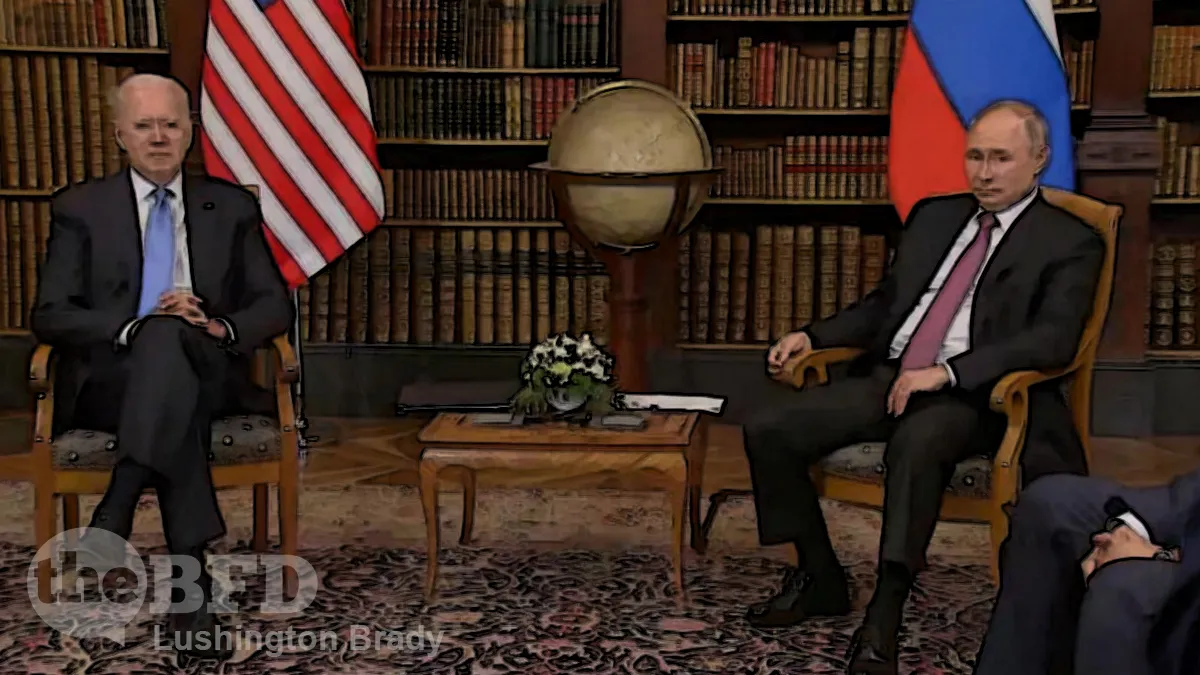Table of Contents
It’s more than a month since I first wondered, Has Putin Been Lured into a Trap? Was the US and NATO game plan a cynical ploy to fight Russia by proxy to the last Ukrainian, leaving them free to deal with China? As it turns out, I’m not the only one to think so.
After all, despite what the propagandists in Kiev or the legacy media would like us to think, Russia is clearly winning the war. Not as easily or swiftly as they no doubt hoped, but winning they undeniably are. It’s looking almost certain that the partition of Ukraine along the Dnieper — basically Vladimir Putin’s main war aim — is all but sorted, bar the shooting.
Which further raises the question: when do we lift the sanctions? Or are they going to become an economic version of the Forever Wars we just spent the last 20 years fighting? What are the sanctions even for?
They were imposed in response to the Russian invasion, but their language does not stipulate the terms on which they are to be lifted again. When I testified to the Foreign Affairs committee of the European Parliament in March, one Swedish MP declared that they should only be removed if Russia withdraws completely not just from the territory it has occupied since this invasion began, but from the Donbas, whose independence Moscow has recognized, and Crimea, which it annexed in 2014.
This would mean — and was doubtless intended to mean — that the sanctions would continue indefinitely irrespective of any peace agreement; for no serious expert I know thinks that Russia will ever abandon Crimea (against the wishes of a majority of its population, in case that’s a relevant ethical precept) and the naval base of Sevastopol. Instead of helping to make peace on reasonable terms, sanctions would essentially become an instrument to keep the war in Ukraine going indefinitely.
Western strategists are more or less stating plainly what I wondered, a month ago: Ukraine is just a strategic tool. Like the Germans at Verdun, Western strategists are callously planning to bleed Russia white. Ukraine is just so much collateral damage.
And this is precisely what some hardliners in the United States and their allies in Europe want, in order to overthrow Putin, weaken or destroy Russia, and isolate China. Like Radek Sikorski, a former Polish foreign minister addressing the European Parliament, they have spoken openly of Ukraine serving as a new version of Afghanistan in the 1980s, where US aid to the Mujahidin rebels weakened the Soviet Union and hastened its collapse. What they do not mention is that this Western triumph took place at the cost of hundreds of thousands of Afghan lives and the destruction of the Afghan state.
It would be wonderful if the Russian elites would get rid of Putin and seek reform at home and peace in Ukraine; nonetheless, the wicked folly of such a Western sanctions strategy should be obvious.
After all: when have sanctions ever actually worked? Did they bring down Cuba? Venezuela, Iran, North Korea? Russia is vastly larger and more economically resilient than any of those countries.
And sanctions have a way of blowing back.
As Mohamed El-Erian of Queens’ College Cambridge has written in the Financial Times:
By the time the spillovers and spillbacks have made their way through the world, we will have faced some of the toughest economic and financial challenges of the 1970s, 1980s, and 1990s. But there is one important difference: they will all have materialised at the same time.
If the war and sanctions continue, then Europe is almost certain to face recession, and this may easily spread to America as well — dooming the Biden administration and bringing a radical right-wing administration back to power.
Well apart from the silver lining of the last, already, food and energy prices in many parts of the world are soaring. Food shortages are becoming a very real possibility for much of the world.
It is therefore of critical importance that Europe and the USA reject tying sanctions to regime change, and instead link them explicitly to a diplomatic process to end the war.
Some of the basic terms of any possible peace settlement are already clear. Moscow will obviously have to withdraw its troops from all the new areas it has occupied, and guarantee the sovereignty and independence of Ukraine. Kyiv would have to sign a treaty of neutrality, possibly modelled on the Austrian State Treaty of 1955 by which Western and Soviet occupying forces withdrew from that country.
Such a treaty would rule out membership both of NATO and any Russian-led security alliance. As for the status of Crimea and the Donbas, the only plausible way to resolve these disputes — if resolution is what outsiders actually want — is local democratic referendums under the supervision of the United Nations.
The Critic
In other words, what Putin has demanded and Zelensky has mostly all but conceded.
Which means that the war could be over tomorrow — if the Masters of War in Washington and Brussels want it.







